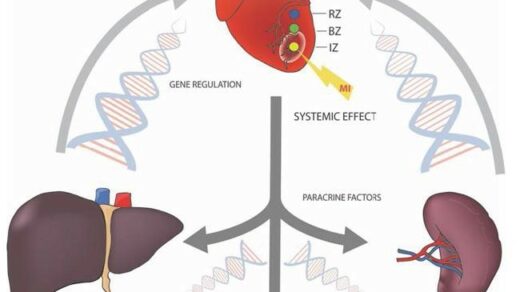“While the test poses minimal physical risk, there is no assurance of “safety” from psychological distress.”
Would you take a test to find out your cancer risk? At-home genetic testing makes it easy, but experts warn that these tests may create more harm than good.
A New Approach to Genetic Testing
Genetic testing has traditionally been performed under the supervision of healthcare providers, with genetic counseling to help patients navigate their results. This approach ensures that individuals receive proper guidance, reducing the emotional and practical challenges of interpreting complex genetic information.
In September 2023, the United States Food and Drug Administration (FDA) approved a new test called the Invitae Common Hereditary Cancers Panel. This test checks for changes in 48 genes linked to hereditary cancers, including breast, ovarian, and Lynch syndrome-related cancers. What makes it different is that it can be ordered online and taken at home with no doctor required.
While the convenience of these tests is appealing, health experts have raised serious concerns. An editorial titled “Pitfalls and Perils from FDA-Approved Germ-line Cancer Predisposition Tests,” authored by Dr. Wafik S. El-Deiry, Editor-in-Chief of Oncotarget, and Dr. Eli Y. Adashi, both from Brown University, highlights the potential risks of using these tests without professional guidance.
Concerns Raised by Experts
Experts warn that while at-home genetic tests sound simple, they often leave users with more questions than answers. A common issue is the detection of Variants of Uncertain Significance, genetic changes that are not definitively linked to cancer risk. Without proper context, these ambiguous findings can lead to unnecessary anxiety or uninformed decisions.
Another concern is the potential impact on minors. Without medical oversight, children may take these tests without fully understanding their implications. If the findings are not shared with healthcare providers or added to medical records, critical follow-up care could be missed, leading to long-term health consequences. Additionally, these tests are rarely covered by health insurance, adding financial burden to individuals.
The Importance of Professional Guidance
Genetic counseling is essential to make sense of genetic test results. When testing is done under medical supervision, it can guide individuals toward proactive decisions, such as increased screenings or preventive treatments. Without this support, results may be misinterpreted, causing unnecessary worry or missed opportunities for intervention. Requiring access to genetic counseling ensures that all users fully understand their results and can take appropriate next steps.
What Needs to Change?
The editorial calls on the FDA to implement stricter regulations to ensure the safe and responsible use of at-home genetic tests. Ensuring that the test results are integrated into healthcare systems is another critical measure, particularly for minors who may need long-term follow-up.
Testing companies must also be transparent about the limitations of their products. For instance, not all detected genetic changes are linked to cancer risk, and this should be communicated clearly to set realistic expectations and avoid unnecessary alarm.
The Future of At-Home Genetic Testing
At-home genetic cancer tests mark a significant step forward in healthcare by providing easier access to information about hereditary cancer risks. However, to truly benefit individuals, these tests must include safeguards such as genetic counseling, integration with healthcare systems, and clear communication about their limitations.
With proper regulation and professional guidance, genetic testing has the potential to save lives by identifying risks early and enabling preventive care. Without these measures, however, the benefits of this innovation could be diminished by confusion and missed opportunities for effective healthcare.
Conclusion
At-home genetic cancer tests have great potential, but their convenience should not come at the cost of proper support. Without the right guidance, these tests can have negative consequences. Finding a balance between accessibility and healthcare support, such as genetic counseling, is crucial. This will help ensure they are safe and effective while empowering people to make informed decisions about their health.
Click here to read the full paper in Oncotarget.
—
Oncotarget is an open-access, peer-reviewed journal that has published primarily oncology-focused research papers since 2010. These papers are available to readers (at no cost and free of subscription barriers) in a continuous publishing format at Oncotarget.com.
Oncotarget is indexed and archived by PubMed/Medline, PubMed Central, Scopus, EMBASE, META (Chan Zuckerberg Initiative) (2018-2022), and Dimensions (Digital Science).
Click here to subscribe to Oncotarget publication updates.
For media inquiries, please contact media@impactjournals.com.



